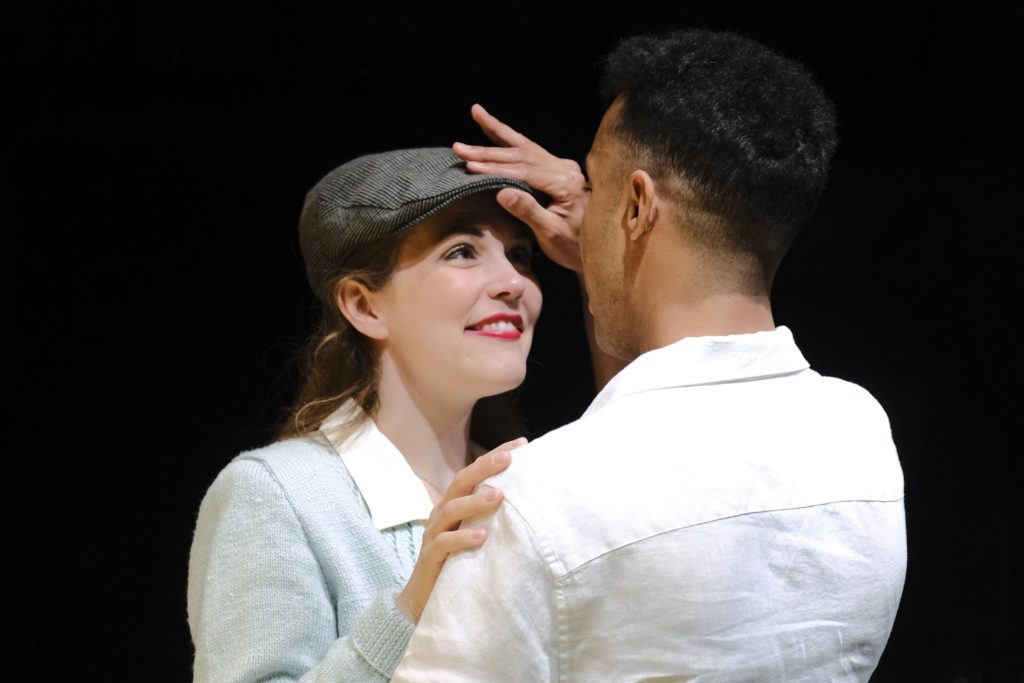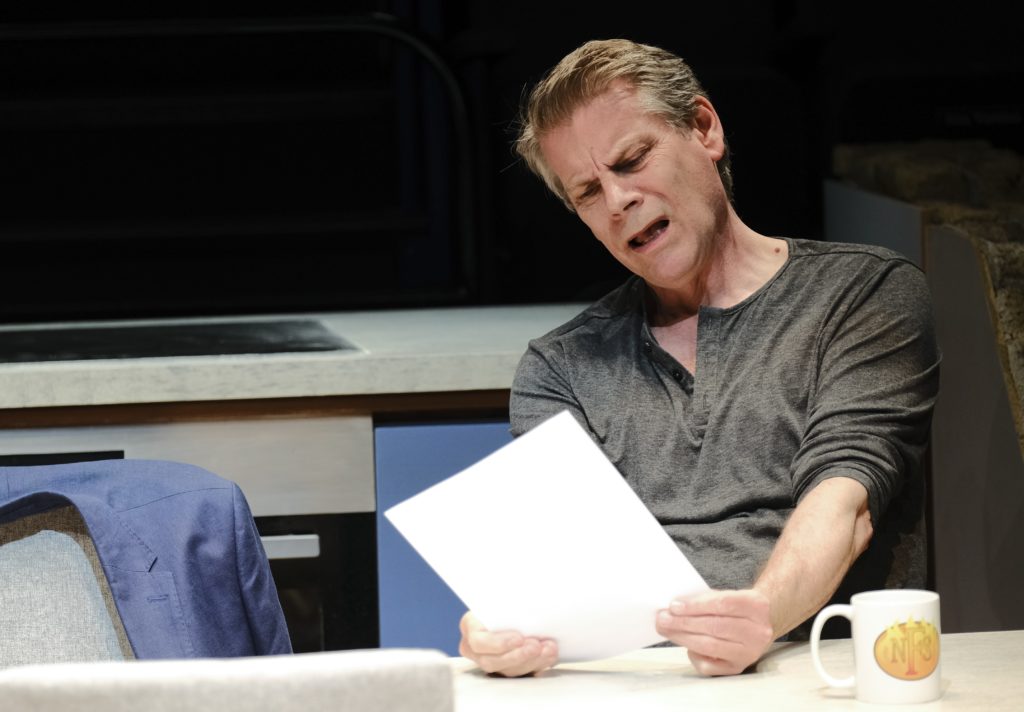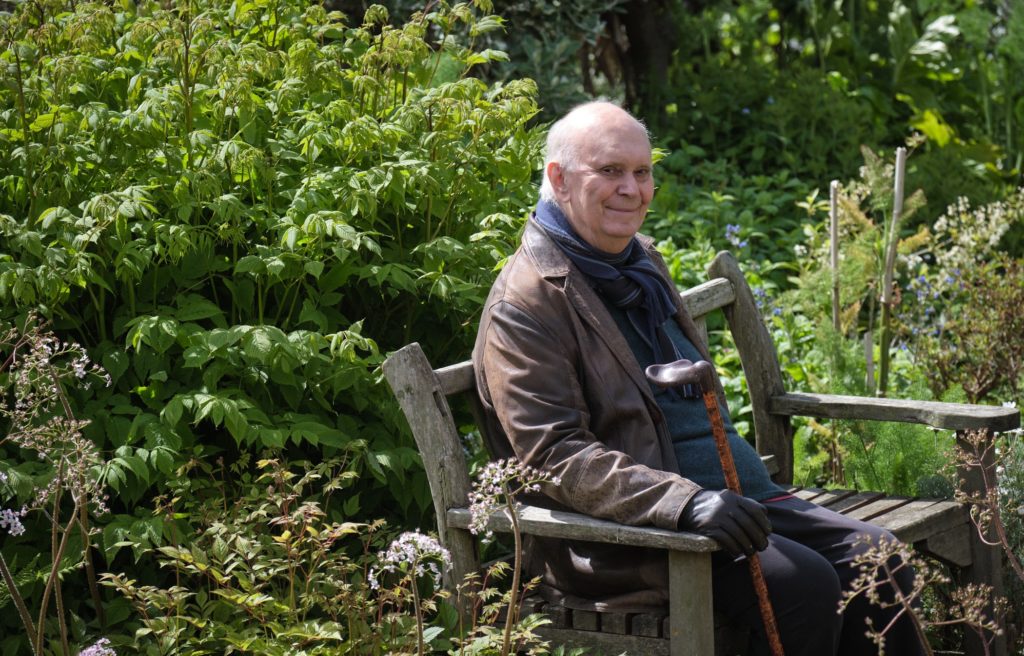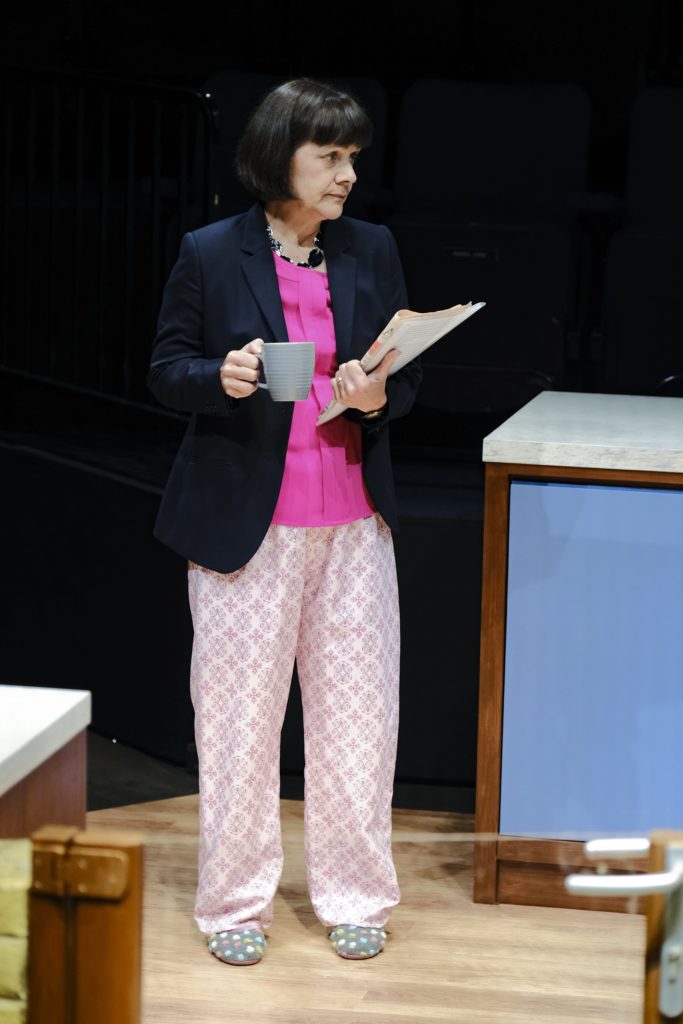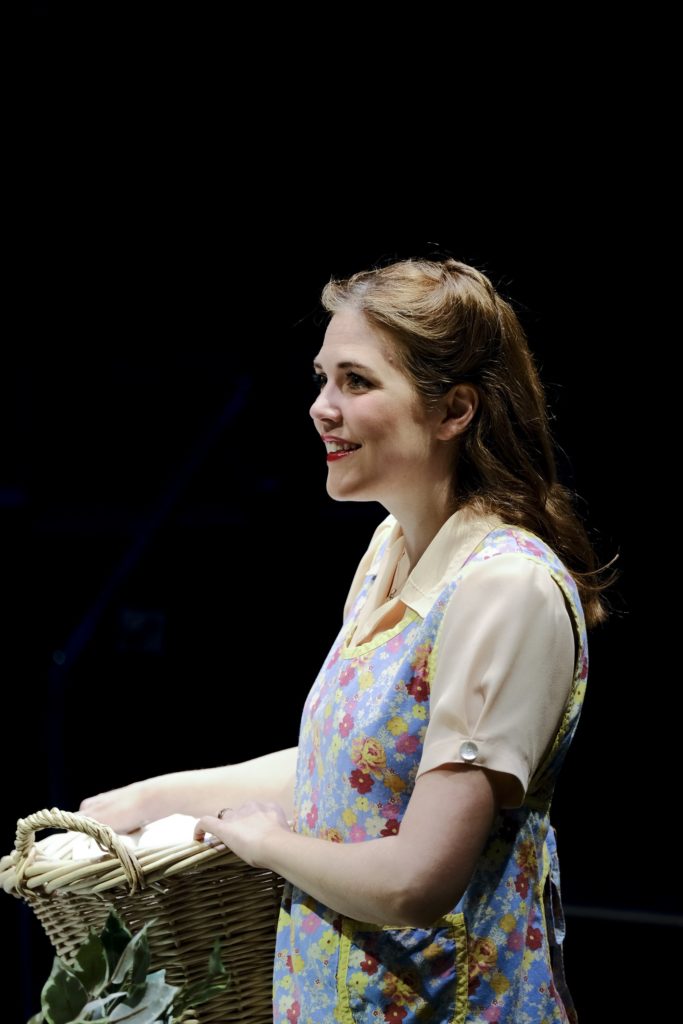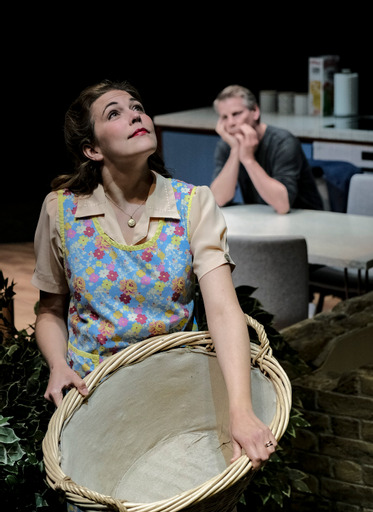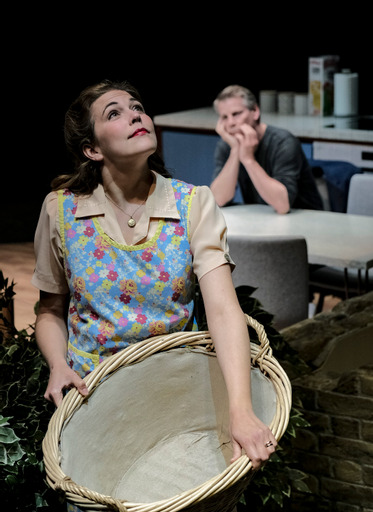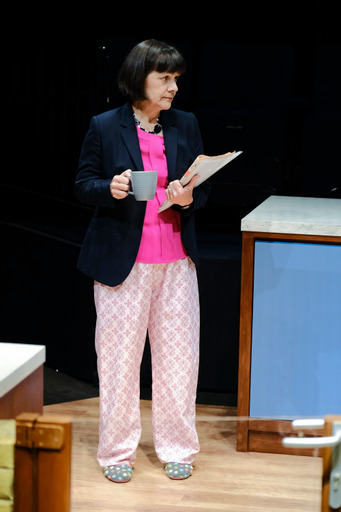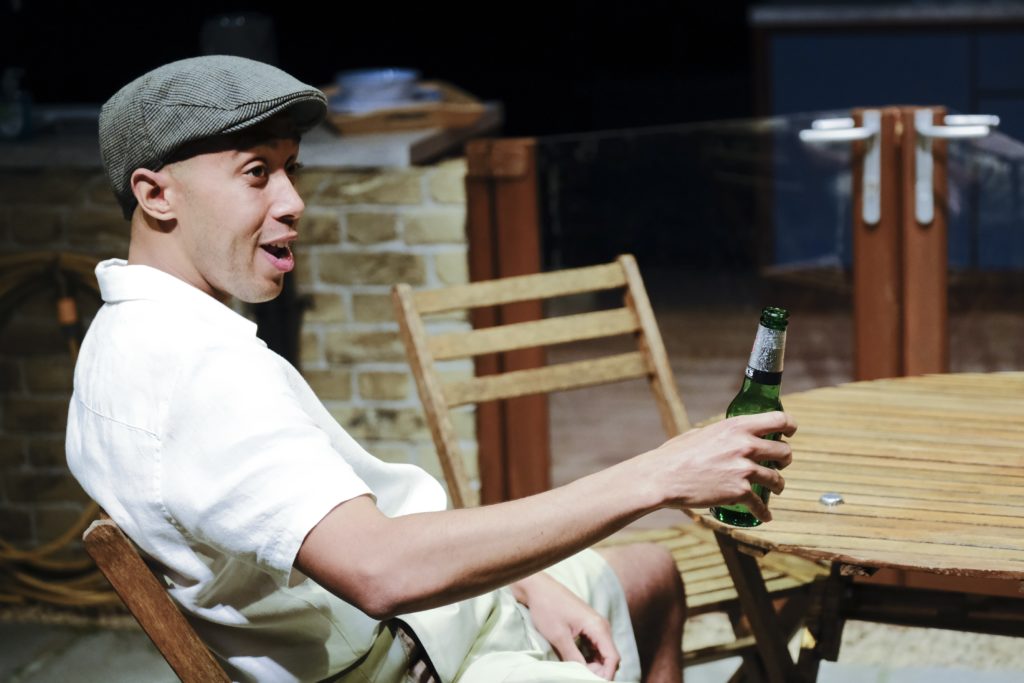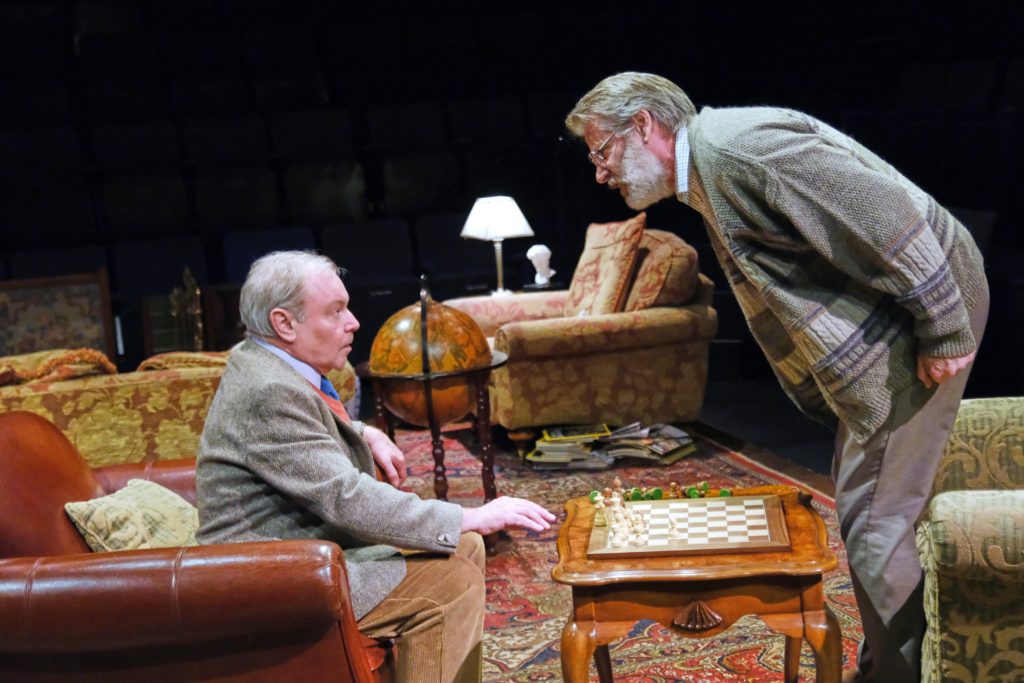
IN the words of Alan Ayckbourn, “Show & Tell is about something which has preoccupied me for the last 60 years and probably more – theatre.”
In those years, the Scarborough writer-director has chalked up 90 plays – and still more are on their way. His SJT play for 2026 is written already and he is part way through 2027’s premiere too.
Play number 90, Show & Tell, is a “love letter to theatre”: the joy of theatre, the pleasure of writing and directing for Ayckourn at 85; the abiding delight for his audience in his abiding wit, social and cultural observation, foresight and insight, mischief-making and rug-pulling darker undercurrents.
Show & Tell is among his most playful in its celebration of the possibilities presented by ‘the play’ as an artform, here refracted through a backward glance at its back pages and his own too. A play full of play and full of plays, and indeed a play within a play.
All this is wrapped up in dark farce that “lifts the lid on the performances we act out on a daily basis,” as Sir Alan puts it. How much do we “show and tell”; how much do we conceal?
In this case, retired West Yorkshire managing director Jack Bothridge (grizzled, irascible Ayckbourn regular Bill Champion) has invited Homelight Theatre Company actor Peter Reeder (Richard Stacey) to the Bothridge family hall to tie up arrangements for a birthday party performance for his wife.
Unfortunately, belligerent Jack has no recollection of making any arrangements, mistaking the unnerved Peter Reeder for a meter reader. What’s more, Jack is not so much forgetful as in the incipient stages of dementia, in a hinterland between assertive clarity and confusion, as Ayckbourn exposes the misogyny, gruff bluntness, delusion and self-entitlement born of running a family business often on a capricious whim.
Champion is in terrific form here as a latter-day Lear, while Ayckbourn’s study of the generation that soils and spoils a family business is spot on in a nod to Ibsen and Arthur Miller. Look at Jack’s bullying treatment of Ben Wilkes (Paul Kemp), who ran his formal clothing department and is now his carer, outwardly as loyal as Lear’s Gloucester.

However, there is much more to the reserved Wilkes than first meets the eye, caught wonderfully by Kemp, the essence of the gradual “show and tell” in Show & Tell. His shattering revelation, told to the sympathetic ear of actress and company manager Harriet ‘Harry’ Golding (Frances Marshall) is a gem of a quietly detonating scene.
Kemp’s Wilkes becomes embroiled in the other side of the story: Ayckbourn’s depiction of the world of theatre, past and present. Through the tribulations of the ailing Homelight Theatre Company, desperately in need of Jack’s booking, Ayckbourn hones in on the dramas faced by companies post-Covid, the struggle to draw an audience, the battle between artistic ambition and exigency.
He comments too on the fad for changing a company name to meet changing times, in this instance from the pioneering Front Room Theatre to the more inclusive-sounding Homelight. He duly recalls the groundbreaking days of Centre 42, the radical project of Arnold Wesker and Charles Parker, one said to have “inflicted the most damage on theatre since Cromwell”.
Act Two recalls Ayckbourn’s 1984 play A Chorus Of Disapproval in going behind the scenes, but crucially too it draws on Ayckbourn’s earliest days at the Stephen Joseph Theatre, directing a French farce in 1961 when artistic director Stephen Joseph told him his budget was “technically nothing…and if you push me, £5”.
In theatre tradition, by now joined by Olivia Woolhouse’s insouciant actress Steph Tate, Kemp’s Wilkes steps in when needs must, the cue for Stacey’s exasperated Reeder to act like a spoiled child in the readthrough and Kemp to scene-steal gloriously.
What follows this character-revealing shenanigans is the play within the play: a full-scale French farce, A Friend Indeed, in Ayckbourn’s knowing pastiche of the artform, played straight but inherently over-the-top in full period costume.
Theatre laid bare, life laid bare, warts and all, yet delivered with a love of the stage that never dims.
Alan Ayckbourn’s Show & Tell, Stephen Joseph Theatre, Scarborough, until October 5. Box office: 01723 370541 or sjt.uk.com.

